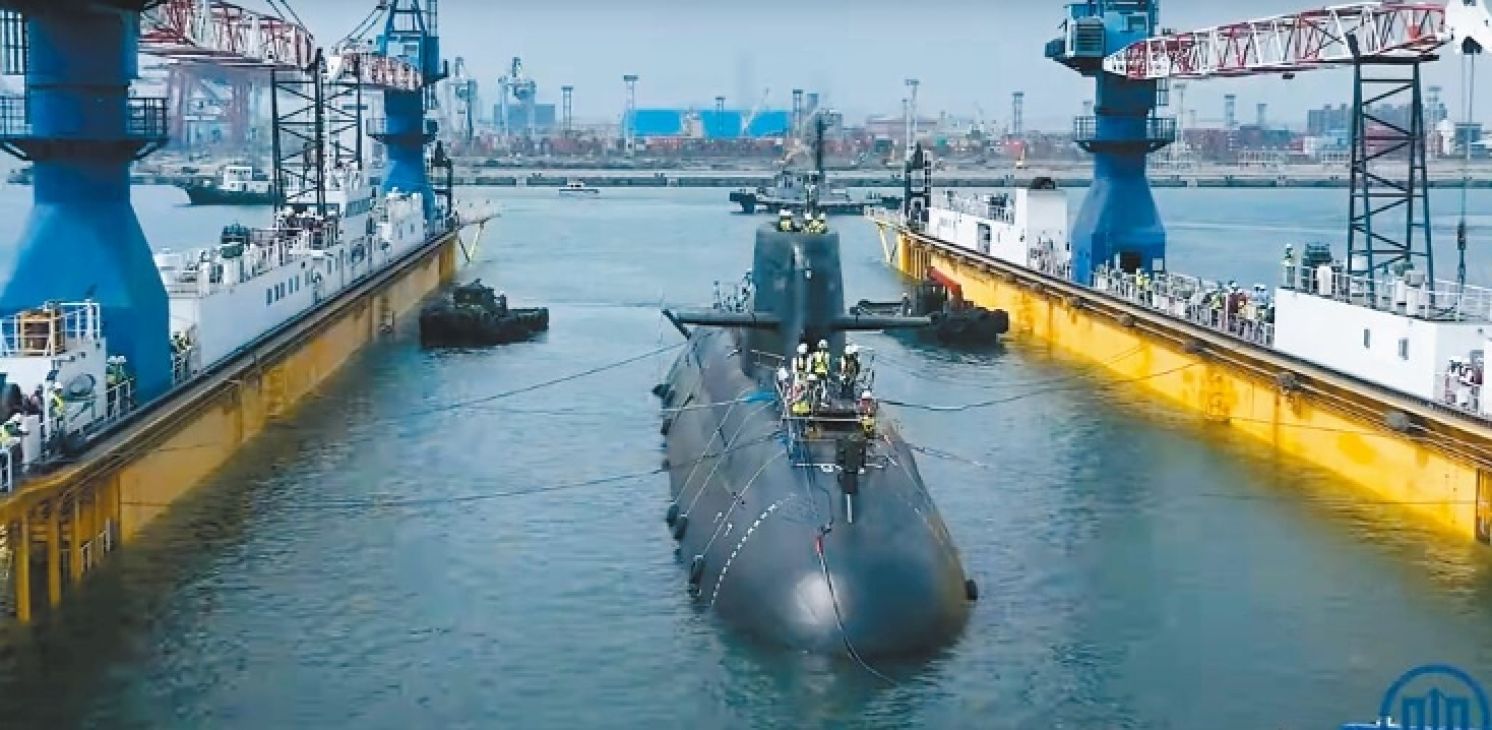
Taiwan to Invest $84.8 Billion in Submarine Program Over 14 Years
China Times, August 23, 2024
The Executive Yuan has approved a budget of NT$2.84 trillion (about $84.8 billion) for the construction of seven new submarines over the next 14 years. This plan, which will run from 2025 to 2038, includes the development of new submarines following the ongoing tests of the prototype, Hai Kun. However, only NT$2 billion (approximately $62 million) is allocated for initial work in the upcoming year.
Minister of National Defense Wellington Koo stated that further funds will be allocated only after the Hai Kun completes its harbor and sea trials. The submarine is expected to be delivered by November 2025.
The overall defense budget for the next fiscal year is NT$6.47 trillion (about US$203 billion), comprising NT$4.76 trillion (about US$149 billion) for defense, NT$904 billion (about US$28.3 billion) for special budgets, and NT$806 billion (about US$23.3 million) for non-operating special funds. This budget represents approximately 2.45 percent of Taiwan’s gross domestic product (GDP). Military investment within this budget totals NT$1.458 trillion (about US$45.7 billion), marking an increase of NT$203 billion (about US$6.3 billion) from the current year, with funds primarily directed toward new projects and ongoing payments.
The Ministry of National Defense (MND) revealed that the budget for the next fiscal year is NT$4.76 trillion (about US$149 billion), a 9.6 percent increase from the previous year. The focus will be on advancing domestic military production and improving defense capabilities. The seven new submarines will be built in three phases: 3+2+2. The budget next year includes NT$2 billion (about US$62.8 million) for initial operations, covering equipment maintenance, enhancing asymmetric warfare capabilities, reserve forces, and operational resilience, demonstrating Taiwan’s commitment to self-defense.
Taiwan's approach to budgeting for the new submarines mirrors the method used for the Brave Eagle trainer aircraft, for which the MND allocated NT$68.6 billion (about $2.2 billion) for 66 units, with only NT$500 million (about $16 million) set aside in the first year.
Security expert Chieh Chung noted that in the Legislative Yuan, it is common practice for multi-year budgets, especially for military procurement, to receive initial approval, with subsequent years typically not having the entire project rejected. The executive branch often uses this "head over heels" tactic by allocating only a small portion of the total budget initially, sometimes just "administrative costs," to push large or controversial projects through.
Security expert Su Tzu-yun explained that the NT$2.84 trillion (about $84.8 billion) estimate for the seven submarines is a preliminary figure. The actual budget will be allocated annually based on the completion of sea and combat tests for the Hai Kun submarine, similar to the budgeting discipline for batch-built naval vessels in other countries.
Su estimates that each submarine will cost approximately NT$35.5 billion (about $1.1 billion), including future upgrades and dock equipment. This estimate, which excludes the cost of around 210 units of ammunition, translates to about NT$12.5 million (about US$392,000) per ton. This cost is reasonable compared to Singapore’s German Type 218SG submarines (around NT$13.95 million per ton) and Norway’s Type 212CD submarines (about NT$11.8 million per ton).
Su also noted that the new submarines, along with shore-based anti-ship missiles like the Hsiung Feng and Harpoon, will provide Taiwan with both near and long-range naval strike capabilities. This combination will enhance Taiwan’s ability to block enemy landings and maintain a strategic balance against numerically superior adversaries. Additionally, the submarines will serve as a "fleet in being," contributing to Taiwan's defensive posture.
Spokesman Chen Shih-kai of the Executive Yuan emphasized the government's commitment to maintaining peace and stability in the Indo-Pacific region, enhancing national defense, and implementing domestic military production policies to protect Taiwan's sovereignty.
Regarding the U.S. request for Taiwan's defense budget to reach 3 percent of GDP, Deputy Minister of National Defense Hsieh Chi-hsien stated that while there are various opinions on defense spending, Taiwan will adhere to its budgetary processes. The focus will be on meeting operational needs and considering overall national financial constraints, without engaging in an arms race.
From: https://www.chinatimes.com/newspapers/20240823000443-260118?chdtv